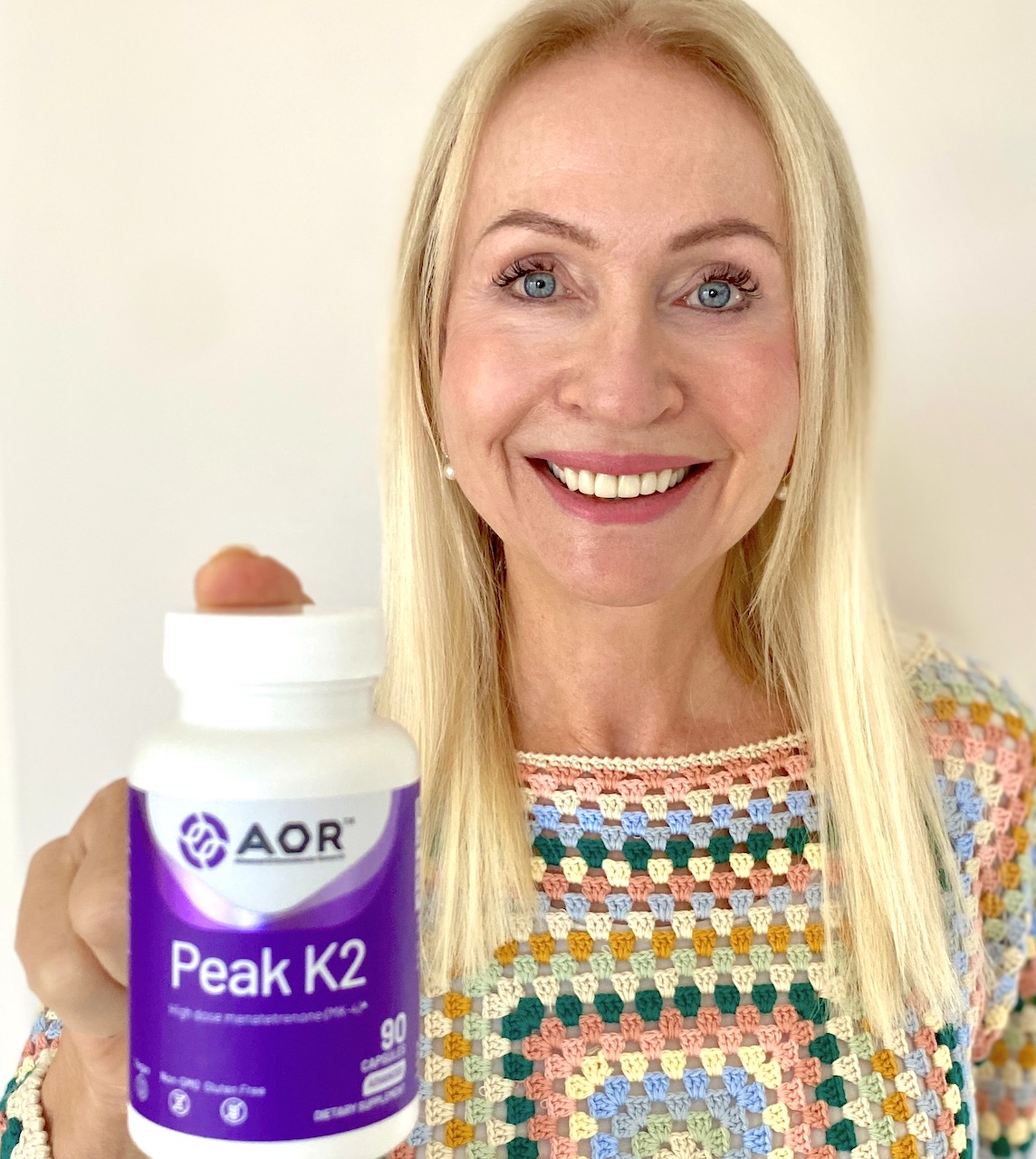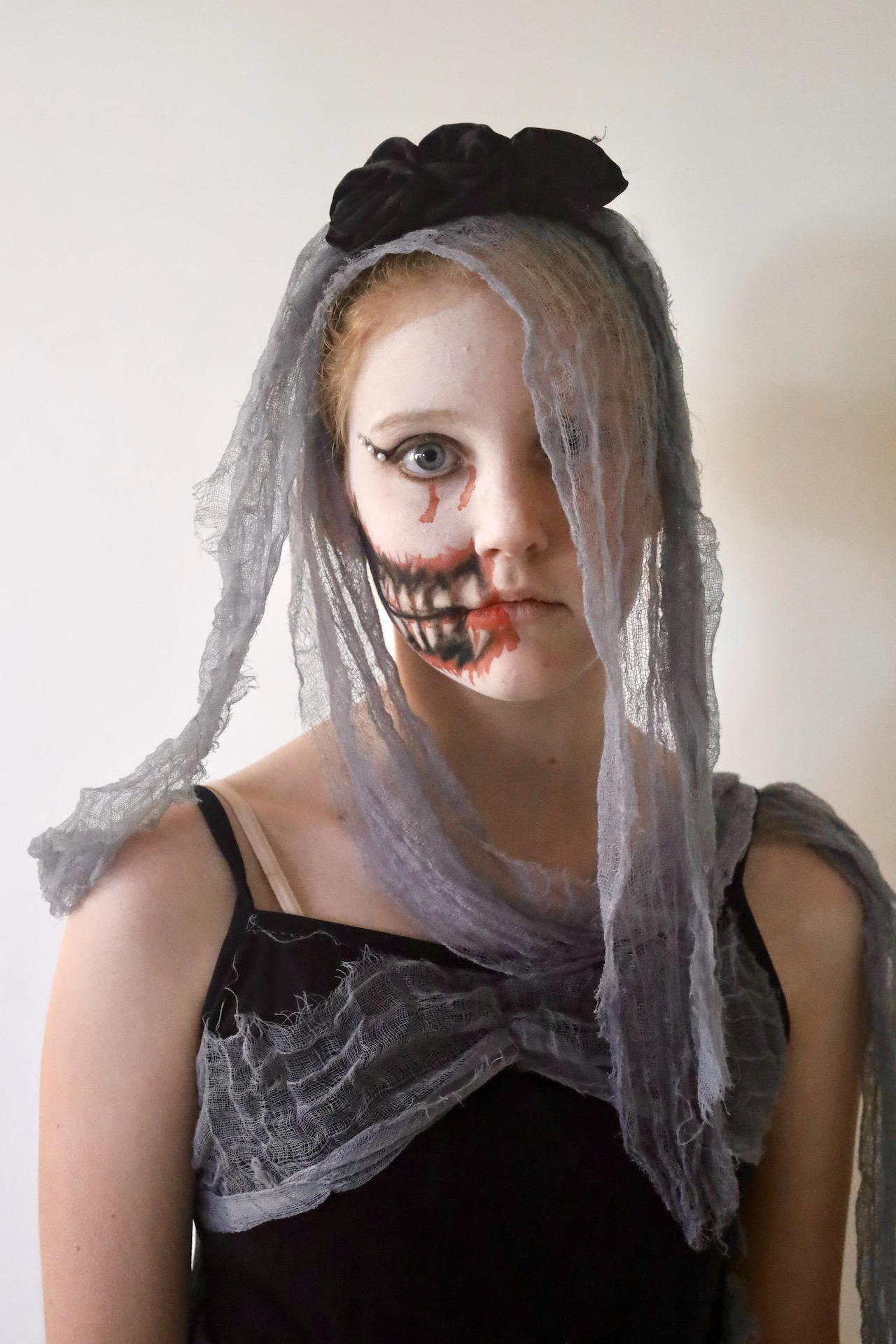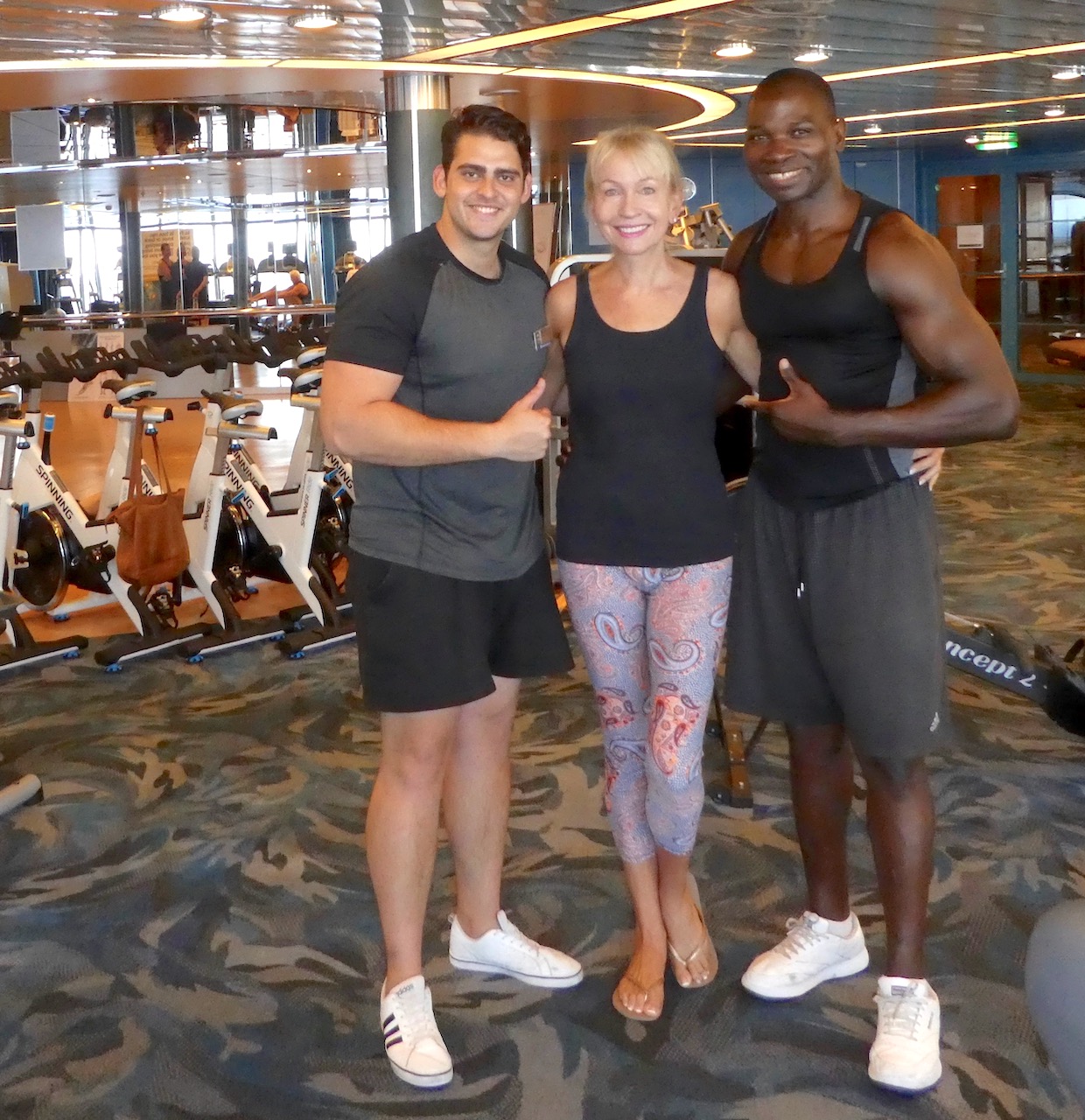#38 5 Great Mental Health Habits
5 great mental health habits to avoid losing your mind and burning down the house; sub-categories of burning down the house; the depressing truth about Prozac; saluting Alf Burgess; prioritising sleep; blue light blockers and light-emitting-devils; catching the early light for your suprachiasmatic nucleus; limiting media exposure; practising gratitude, becoming anti-fragile, learning to forgive and taking less offence
This post is loosely based on an article I was recently asked to write for the latest edition of Explorer, the inflight magazine for the seaplane that takes you to the phenomenally gorgeous private island resort known as Bawah Reserve, located in Indonesia’s far-flung Anambas Archipelago.
Coincidentally – or maybe not – as I was writing this, Roy and I were on an SIA flight to Singapore; the next morning, we’d be boarding one of Bawah’s two seaplanes from Batam Island’s Hang Nadim Airport for the scenic, 70-minute flight to paradise.
______________________________________________
Losing my mind?
Many of us have a horror of losing our mind. It’s one thing to know we’re all going to die sometime, somehow. But the prospect of Alzheimer’s or other dementia is both terrifying and unbearable.
It’s just as scary to contemplate this happening to your loved ones. Maybe even more so, judging from the expression on Roy’s face every time I commit an infringement, like: not folding a shopping bag neatly along its creases (thank goodness paper maps are now largely a historical footnote); forgetting to lower a toilet lid (a new rule of his, it must be said); or burning down the house*.
*Sub-categories of burning down the house
“Burning down the house” has several sub-categories. They include:
- Leaving the warming drawer on after taking the heated dinner plates out;
- Expecting the fridge doors to close themselves (why don’t they?);
- Not switching either the washing machine or drier to the “off” position.
- Not waiting in the lane to check that the garage door has actually closed right down to the ground before driving off.
- Actually burning down the house, perhaps by leaving one or more gas burners on.
Focus, Verne, focus!
“You’re getting worse!” he says. “Focus, Verne, focus!” I don’t think I am getting worse, actually. I’ve been scatter-brained day-dreamer since I was little. It’s a personality flaw I’ve always had, not progressive brain damage. No amount of parental fury nor maternal beating helped me remember to bring home that lunch-box, school blazer or homework notebook.
______________________________________________
Alf & June
My old running coach and friend in Durban, Alf Burgess, devotedly cared for his lovely wife June for many years before she died of Alzheimer’s just a few weeks ago. Although already well into his 80s, Alf has been unimaginably heroic in this self-appointed task. Through it all, he has still managed to train each year for the Comrade’s Marathon, the gruelling 80km (50 mile) ultra between my hometown of Durban and the neighbouring city of Pietermaritzburg. Often, this meant quietly leaving the house at 3am or 4am to fit in a couple of hours of road-running before she woke up. Who knows, it may be that the fortitude and endurance he accumulated over five or six decades and innumerable thousands of kilometres helped equip him to step up to this huge life challenge. We salute you, Alf. RIP, Junie.
__________________________________________________
5 Great Mental Health Habits – What we can do
It has been said that the mind is a fragile thing. That’s truer today ever before, as we see mental health problems escalating worldwide… if not much closer to home.
Take depression, for example. While it’s fairly easy to get a prescription for Prozac, fluoxetine and other SSRIs are notoriously ineffective, come with side-effects and can be hell on Earth to wean ourselves off of. Even the medico-pharmaceutical authorities are being forced to admit this, after years of cover-ups and downright lies. (Dr David Healy’s Let Them Eat Prozac (2004) exposed the serious risks associated with SSRIs, and that the “chemical imbalance” theory is a marketing tool, not a scientific explanation. He’s a prominent British psychologist and psychopharmacologist who went through the mill of suicidality himself after coming off an SSRI – never having been warned about possible pitfalls, which would be the basis for genuinely informed consent.
Once again, there is no silver bullet. Mental health is a factor of so many variables – most related to lifestyle, and many within our personal power to change.
5 Great Mental Health Habits
As it turns out, there’s plenty we can do for ourselves – and the five healthy habits listed below cost nothing! I practise all five of these to some extent, and while at Bawah I made a point of concentrating on them.
#1 Prioritise sleep
Good sleep is essential for regulating emotions, enhancing cognitive skills and boosting overall mental resilience.
Entire books have been written on the subject, like the excellent Why We Sleep (by dorky British professor of neuroscience and psychology at the University of California, Berkeley, Matt Walker). I also follow The Matt Walker Podcast.

Here’s my short take on how to get the necessary seven hours or more of high-quality snooze-time:
- Get full-spectrum daylight in your face every morning. For the detailed reason why, see #2 below.
-
Go to bed at the same time every night, or as close thereto as possible. Since the start of 2025, Roy and I have been making a concerted effort to do this, and have even succeeded in moving our bedtime forward by an hour to around 10pm. It’s not a religion; but I do my best. Tonight, as I write this, the Monza F1 Grand Prix starts at 9pm, and we’re staying at the place of a friend in Singapore where the TV is in the bedroom – so the earliest I’ll be able to turn out the light is around 11pm. Not to mention that we’re in Singapore for another friend’s big birthday party, which was held last night… and didn’t get to bed until after 2am.

- Wind down with a pre-bed routine involving self-care rituals like a warm bath or shower, self-massage, low lighting (like candles or a red lamp) and no screens or devices. I absolutely need to do this, and my MacBook Air automatically switches to Night Shift mode, which reduces blue light in favour of a warmer spectrum. But Roy generally has no problem watching Netflix until 9.50pm before rolling into bed ten minutes later and almost immediately dropping off. We’re all different… but for anyone who’s having trouble either falling asleep or staying asleep, late screen time is a notorious circadian rhythm disrupter just could be part of the problem.
-
Cool the bedroom and make sure it’s as dark as can be – you shouldn’t be able to see your hand in front of your face. When I travel, I make sure to unplug any light-emitting-devils (that’s what LED stands for). If that’s unfeasible, I’ll cover them with cushions, drape garments over them or use the duct tape in my sleeping kit* in various ingenious ways possibly not foreseen by the manufacturers.
-
Take a nap only if, and only for as long as you need to, preferably not too close to bedtime. (I freely admit to including this tip merely as an excuse to posting this delicious hammock shot from Bawah Reserve.)

* My Sleeping Kit
An IKEA zip-lock bag containing:
- Blue-light blocking glasses to wear in the half-hour or so before bedtime, with the added allure of this Bono-esque effect

- A freebie SIA sleep mask (I bought a state-of-the-art sleep mask online from Boncharge, but never seem to have it with me when I need it)
-
Silicone ear plugs, a hangover from when Roy used to snore – but now I’ve become addicted to them
-
A tiny travel torch to enable finding the loo without (a) turning on a larger lamp and then struggling to get back to sleep; or (b) possibly peeing in the corner of the wardrobe.
-
Essential Beauty macadamia nut and pawpaw lip balm (Aldi stores), applied liberally before bed so as to be shared magnanimously with the beloved spouse.
-
Non-medicated artificial tears in case I wake up with uncomfortable dry eyes… which has been an issue since I underwent Lasik more than 15 years ago. Speaking of dry eyes, here’s a link to my previous blog about snoring, and the usefulness of mouth-taping in preventing mouth-breathing.
-
And finally, my husband. (Separate from the IKEA ziplock bag, I hasten to explain.)

Melatonin
I’ve also started taking melatonin (2mg, 3mg or 5mg) half-an-hour before bedtime. That’s a big subject that’s worth a blog-post on its own. It’s not easy to buy melatonin in Australia; but it’s freely available OTC in both Singapore and South Africa.
“The shorter your sleep, the shorter your life span.”
- Matthew Walker, author of Why We Sleep
_____________________________________________________________
#2 Go outside early
Whenever possible, get full-spectrum morning light not only on your skin but directly into your eyes. Being outdoors for as little as ten minutes each morning – as soon as possible after sunrise, or after waking up – works to reset circadian rhythm, manage hormonal balance, ensure a good night’s sleep and so much more. (For a more comprehensive explanation, see this earlier post of mine.
Why the morning light? Our body’s central pacemaker, a small region of the hypothalamus in the brain called the suprachiasmatic nucleus*, needs to receive early daylight input through the retina to do its all-important job. No sunglasses, no spectacles, no contact lenses!
- If you ever mastered the Mary Poppins song Supercalifragilisticespialidocious, then suprachiasmatic nucleus will be a cinch to remember… and so satisfying to airily trot out during coffee with the girls.

And then, throughout the day, spend as much time as possible outside. Some researcher decided that we need a daily minimum of 67 minutes outdoors – sounds random, right? Though I assume you might need less on a bright, sunny day and more on a cloudy day.
We can’t all be life-guards in St Tropez or fruit-pickers in New Zealand. But most of us can resolve to step away from our desks, leave our devices behind and walk around the block for five or ten minutes every hour. Just do it!


“Sunlight is the source of life.”
- Jack Kruse, neurosurgeon and author of Epi-paleo RX: The Prescription for Disease
_____________________________________________________________
#3 Limit media exposure
Over-exposure to social media is famous for lowering mood. Especially in younger people, the risk of anxiety and depression is now proven to be directly proportional to the amount of time spent on social media.
That’s because we inevitably compare our own, relatively mundane existences with carefully curated and fake lives on Instagram, Facebook and Snapchat. The result? Increased stress, pressure to compare ourselves to others, FOMO, loneliness and isolation.
Mainstream media, largely lies
It’s not just social media that will bring you down! Almost all mainstream media, and especially the so-called news, is largely propaganda that’s cherry-picked on the basis of one or more financial or political agendas.
Sensational and emotionally charged content is used to continually trigger fear responses that keep eyeballs glued to the screen. It’s designed to keep you and me watching, while repetitively bombarding us with commercials for (a) highly processed and/or fast foods, and (b) the pharmaceutical band-aids for the diseases directly caused by these substances. Follow the money.

If you absolutely must, 10 minutes of news a day might be enough to stay in the loop without losing your mind. While at a place like Bawah Reserve, however, there’s no reason for me to do more than keep up with my favourite platforms – like US attorney Jeff Childer’s Coffee & Covid. I stumbled across it four or five years ago soon after they launched the plandemic (before Jeff supported Trump and before I knew he was a Christian).
“Social media is a very, very powerful tool. It also gives power to tools.”
- Chris Young
_________________________________________________
#4 Practise gratitude
Want to be happier and more satisfied with your present life? Following a gratitude practice may sound embarrassingly Pollyanna-ish, even twee, if you haven’t tried it. Yet consciously practising gratitude can be amazingly effective for lifting mood and promoting overall mental health. (What’s more, no one needs to know. Like Kegels, you can do it anywhere and at any time.)

Gratitude practice fosters positive emotions, improving emotional regulation and boosting a sense of general wellbeing. An effective practice could involve journaling each morning about five to ten things in your life that you’re grateful for. Or it could be as quick as thanking the universe – when you wake up and go outside, or as you switch off the bedside light, say – for just one good thing that happened today. For me, it could be a grounding yoga class, coffee with a friend, or receiving pictures of the grandchildren on WhatsApp. (Thanks, kids! – you’re so good at doing this.)
“The more you practise gratitude, the more you realise how much you have to be thankful for.”
- GK Chesterton
____________________________________________________________
#5 Take less offence
Received a curt email from a colleague? (She forgot to add a smiley emoticon?) Someone cut you off in the traffic this morning? Or a family member forgot your birthday? If you instantly reacted with anger or hurt, it may be because you felt your rights were infringed – your right to respect, to personal safety in your lane-space, to your siblings’ love.
There seems to be a new fashion for taking offence that did not exist when I was growing up. Yes, we got hurt; but we didn’t take self-righteous umbrage in the way you see today. According to one online source, the current trend for taking offence has been associated with “a perceived rise in sensitivity, particularly among younger generations, with terms like snowflake being used pejoratively to describe those seen as easily offended, often by those on the political right.”
Right or left, I reckon that being less of a snowflake – more anti-fragile, if you like – is better for your mental health. That’s because taking offence often hurts you more than it hurts the offender. It can affect your wellbeing and self-worth, cause unnecessary conflict and damage your relationships.
Strive for anti-fragility
Fortunately, being offended is not the inevitable outcome of the act or omission. It is a choice – your choice. Here’s a couple of ideas on how to avoid taking offence:
- Inhale and exhale several deep, calming breaths.
-
Ask yourself: Was it really the intention to upset you? Are you sure?
-
Think about the action – could it possibly be construed differently?
-
Move on.
Learning to forgive: my story
Not so long ago, I had been struggling with feelings of deep disappointment regarding someone important to me who seemed not to return my feelings… unrequited love, I suppose. It was bad enough to cause ongoing resentment and emotional pain. Resentment is not a pretty emotion, and I knew it was doing me harm.
Then I read somewhere that such feelings can be instantly dispelled simply by forgiving the probably unknowing perpetrator: just say in your heart, and as though you mean it: “I forgive you”. So, over the course of a couple of months, I practised doing this. For a while, nothing changed. Then, all of a sudden one day, the resentment was gone. What a relief! In retrospect, I suspect that my feelings had less to do with the person concerned, and possibly more to do with my own ego.
“He who takes offence when no offence is intended is a fool; and he who takes offence when offence is intended is an even greater fool.”
- Brigham Young
______________________________________________________
Postlogue
I’m amazed at how much time has passed since my last post on Living Long & Strong with Verne & Roy. In fact, I particularly didn’t want that post – #37, all about the unglamorous subject of bladder woes – to be sitting on my landing page for so long.
Not that I’ve been idle, far from it! If you check out Travels with Verne & Roy, you’ll see what a busy blogger I’ve been there.
Neither am I anywhere near running out of topics for Living Long & Strong with Verne and Roy. For me at least, it’s an endlessly fascinating subject.
Next up?
I’ve got some thoughts on the subject of fat loss – especially as we soldier on through this cold, wet winter in Perth WA. Meanwhile, I might also do post on our recent Bawah Reserve getaway in Travels with Verne and Roy. See you there! – and if you like any of what you see either here or there, please comment directly into that individual blog post’s Comments box. I would so appreciate that.



















